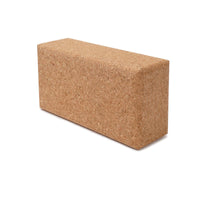
Meditation and concentration
Meditation and Concentration: Improve your focus

Everyday life requires us to be highly focused at all times – whether at school, work, or university. Countless external and internal distractions make it difficult for people to concentrate properly. This article shows you why meditation can help you focus more easily.
1. Overview of meditation and concentration
There are many different tips for improving your concentration. Regular meditation is at the top of the list. Experts have also found that a few quiet minutes help strengthen focus. This is because we arrive in complete silence, let our thoughts drift, and no longer pay attention to external factors.

2. Why it is important to focus on the essentials
The problem for many is that they focus on dozens of different things at once. At first, you might think this will help you get things done faster. However, this is a mistake. Anyone who finds themselves in the following situations can improve their concentration:
- Performing different tasks simultaneously
- Getting bogged down because there are too many to-dos in your head and everything is started in parallel
- Problem concentrating on what is really important
- Setting priorities
Once you know this, you can achieve better results and avoid distraction through increased concentration. Furthermore, with frequent repetition, your stress level will decrease.
3. How can you start meditating?
All beginnings are difficult. If you've wanted to start meditating for some time, but you've always made excuses or encountered problems, the following tips can help.
a) Instructions for correct breathing technique
When you meditate, silence isn't the only important thing. To reach the deepest level and truly feel yourself, breathing exercises (pranayama) are necessary. There are various breathing techniques that can be practiced depending on your preferences.
- Breathe in and out deeply, concentrating on the breath flowing through your nose into your belly, and do the same when you breathe out.
- Breathing techniques such as alternate nostril breathing, fire breathing or Wim Hof will bring you even more peace.
You'll see that starting with the right breathing exercise makes a big difference. Reciting a mantra (such as the Gayatri Mantra or Om) can also be supportive and increase your ability to calm down.
b) The best way to calm the mind and let go
As already emphasized, meditation is a beneficial way to do something good for yourself and bring calm into your system. The advantage is that even short meditation sessions can make a big difference. In addition to meditation, mindfulness is also very helpful. If you practice mindfulness during meditation, you can better integrate this state into your daily life – this allows your mind to focus on just one thing and let go of all unnecessary thoughts.
If it helps, you can write down all your thoughts and then release them again through visualization during meditation. To do this, you can imagine packing all the thoughts that no longer serve you into a box and then burning it in a fire.
c) Practice regularly to achieve the full effect
One of the most important points is that you meditate regularly. Especially at first, it can be difficult to sit down. Therefore, you should establish a pleasant ritual right from the start so that it's fun and you can enjoy the time for yourself. Combining yoga and meditation is helpful for landing in your body even more easily. Essential oils or incense sticks can also create an even more soothing atmosphere.

4. How can meditation help you improve your concentration?
Awareness of the great effect meditation has on the mind, body and soul is growing ever greater – especially in the brain, great effects can be observed.
a) Reduced distractibility and more focus on one thing
In these fast-paced times, our attention spans are becoming increasingly shorter. You'll notice this, for example, when you find yourself completely distracted again within just a few minutes. We can't completely change the external world, but we can manage to focus our energy and attention on one thing. This is why meditation can bring about a profound change in your life. During your practice, you can practice concentrating on a mantra, your breath, a sound, or a visualized image. This ensures that you can focus on one thing more quickly in everyday life.
Further tips:
- Try to organize your outside space so that you are not constantly distracted, for example, putting away your mobile phone, turning off the TV, etc.
- Practice this consciously every moment you can think of it. Ask yourself where your thoughts have been and consciously refocus them on the here and now. This will lead to more relaxation.
- If you incorporate a few asanas on the mat (Hatha Yoga, Yin Yoga, etc.) every day, you can land even more in your body and let yourself fall into meditation even more easily.
b) Increase in endurance and mental resilience
Those who meditate daily and practice focusing their attention on themselves or something external (work, studying, etc.) will become more resilient over time. On the other hand, if you constantly have ten things on your mind, you won't have enough energy available for mental stress or challenges. All your energy dissipates and is no longer available for the truly important things. With a little practice, you'll notice that your resilience level increases significantly again.

5. Tips for better concentration
To improve your attention and concentration, the following tips will help you as a beginner:
a) Eliminate unnecessary distractions
Constantly being exposed to countless stimuli can make it harder for you to concentrate. Therefore, it's advisable to put away all distractions (such as your cell phone, distracting music, or the radio) during a concentration phase. If you're working on a computer, you can close the tabs you don't need.
b) Set goals and try to achieve them
To help you focus better on the here and now, it is advisable to write down a list of your goals before work, studying or doing homework.
- What do you want to achieve in this hour/on this workday?
- What's on the to-do list?
- What needs to be completed today?
This way you can work through everything little by little and concentrate fully on it.
It is also recommended that meditators write a list of the things they want to do afterward – this way, these commitments are not constantly on their minds.
c) Use positive visualization techniques
Images created in the mind can affect mood and well-being. For example, while meditating on the cushion , you can visualize a beam of light flowing through your entire body, flooding it with love and calm. This promotes relaxation. You can also imagine your brain glowing with a golden light, which will help you concentrate better. You can also visualize yourself successfully accomplishing everything in your mind's eye, thereby inviting self-confidence. It's also great to focus on your third eye (located between your eyes) and send energy there to strengthen your intuition.
In the evening, it can be helpful to mentally visualize the past day to help you close it off on a positive note. These active techniques train your mind and focus.
Conclusion
Regular meditation has a profound impact on your concentration. First, it helps you be more present in the moment. Second, it also helps you let go of distractions more easily and focus on what's truly important.
A great final tip: In addition to these points, you should also pay attention to your diet. B vitamins can have a positive effect on brain health.
Do you meditate regularly? If so, has it had a positive effect on your concentration span?
Share







